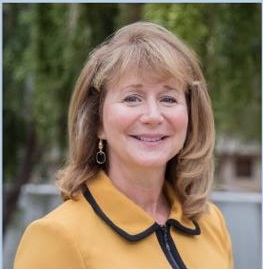Toward Simulation-Based Design of Particle Handling Processes
Time:08 Oct. 2018Source:航空航天学院英文网Author:安婉Click:43

| Date | 8 October, 2018 |
|
| Time | 10:30-11:30 |
| Venue | Room 118, Building No.12, Yuquan Campus |
| Speaker | Prof. Jennifer Sinclair Curtis, University of California, Davis |
| Abstract | Particulate processed pervade the petroleum, chemical, mining, pharmaceutical, and agricultural industries. Many of these processes have significant opportunities for optimization and productivity enhancements. Reliable particle modeling and simulation tools can improve critical understanding and design of particle transport processes; this talk will provide several examples in this regard. A recent approach to modeling particle flow employs the discrete element method (DEM). This presentation will focus on DEM modeling of complex particulate flows for particle mixtures with and without surface moisture, as well as rigid and flexible non-spherical particles. These DEM simulations are validated via experiments. DEM simulations are also capable of developing constitutive relations for the particle phase that are needed for continuum-based CFD simulations in order to simulate large-scale processes. This talk will outline the development of constitutive models for the collisional dissipation rate and the particle-phase stress in granular kinetic theory for particle assemblies that are not spherical or monodisperse. |
| Speaker | Jennifer Sinclair Curtis is Distinguished Professor of Chemical Engineering and Dean of the College of Engineering at University of California, Davis. She is a Fellow of AAAS, AIChE and ASEE. Professor Curtis is a recipient of a Fulbright Senior Research Scholar Award, ALChE’s Thomas-Baron Award in Fluid-Particle Systems, the AIChE’s Fluidization Lectureship Award, AIChE’s van Antwerpen Award, the Eminent Overseas Lectureship Award by the Institution of Engineers in Australia, ASEE’s Sharon Keillor Award for Women in Engineering, and the NSF Presidential Young Investigator Award. Professor Curtis received a B.S. in Chemical Engineering from Purdue University (1983) and a PhD in Chemical Engineering from Princeton University (1989). Professor Curtis’ particulate flow models have been extensively adopted by both commercial and open source computational fluid dynamics (CFD) software packages. She was the first to partner with ANSYS Fluent to greatly expand the multi-phase simulation capability of that code which is used by 96 of the 100 biggest industrial companies in the world and over 40000 customers. Her particulate flow models are also included in the CFD Research Corporation software package and the open-source CFD codes OpenFOAM and MFIX. |



